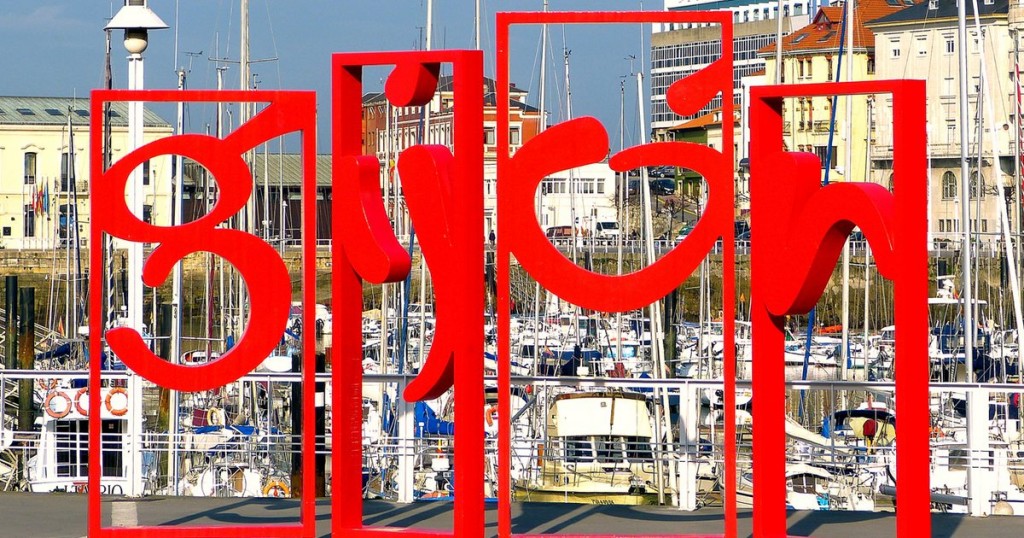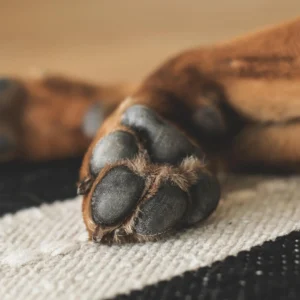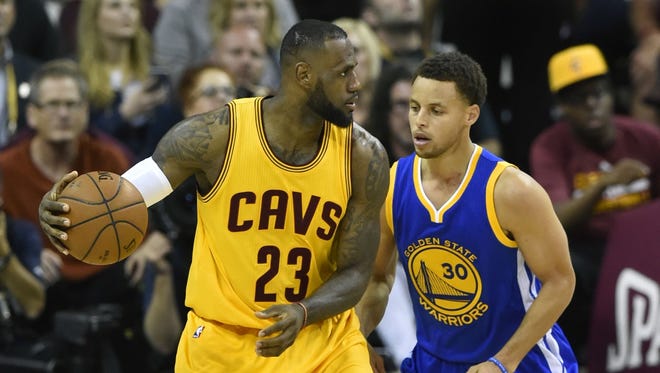“There are silences that define one’s life.” A short story that reflects upon the fact that one day in a person’s life, one moment event, can change everything…

by: Christopher Johnson
My father sat across from me on an old sofa that my parents had owned for years. The springs had long since lost their tensile strength, and my father’s weight pushed him far down into the sofa. He sat looking at me with a faraway stare, the kind that becomes common when you’re eighty-seven. He closed his eyes and took a two-second cat nap and then awakened with a start. His eyes were limpid blue, and he had carefully combed each of the remaining strands of hair — strands that had become so rare you could practically count them one by one.
He sat deeply ensconced in the sofa, his body thinner than ever, his legs pale and nearly hairless, wrapped in flesh-colored hose. He wore a day-old gray stubble of whiskers and his cheeks were slightly cratered. He breathed with his mouth open, which he never used to do. We were alone because my sister, Brenda, had taken our mother to the hairdresser’s and then grocery shopping.
I thought of the photo I had of my father that had been taken when he was in his thirties. It was a sparkling, sharply-etched black-and-white photo: Harry Summers as the world knew him in that moment. Hair neatly tamed and in place, face smiling, a sly dimple to the left of his mouth, his dark tie knotted perfectly. Every ounce the conservative businessman that he was.
“How are you feeling?” I asked. “Have you recovered?”
“Oh, I’m okay, Pauly,” my father replied. “Goddam dog. I could sue. I should sue the goddam owner.”
The week before, my father had been out for a walk and a dog had broken free of its owner and pushed him over. The dog owner was horrified. He had called an ambulance as my father lay on the sidewalk, writhing in pain and in shock. The ambulance swept in and transported him to a nearby hospital. There were no broken bones, no concussion, but they kept him overnight to observe him.
“I should sue the goddamn owner,” my father said again. It had become his current mantra, although I knew there was no chance he would sue. He’d been shaken up and reminded once again of his encroaching mortality. But the errant and exuberant dog had done no real harm except to my father’s pride. You can’t sue, I thought to myself, for pain-in-the-assedness. “I should sue the goddamn owner,” my father said again.
I sought to change the subject. “You finished that book?” I asked. “That big fat history book that I bought you for your birthday.”
My fahter’s eyes fluttered as he fought off one of his mini-naps. “That was good,” he said.
The years seemed to take flight from him, if only temporarily. “Yeah, damn right I finished that book.” I had given him a comprehensive book on American history. He’d asked specifically for something that would take him from the Native Americans to the Bush Jr. era. “You edit history books. Get me a good one,” he’d said.
There was a pause. “I loved reading about the war, that goddamn war.” My father had wanted the book, I surmised, since as the years had accumulated for him, the past had taken on an ever greater significance. “The past…the past,” he would often say. “That’s all I got is the past.” He blinked rapidly to stave off another mini-nap. In a tiny corner of my mind, I wondered whether I was actually witnessing mini-strokes.
My father blinked some more and then said, “Someone famous said something about the past. What was it — you know, the thing that that man said about the past?”
“I think you mean George Santayana, Dad. He was a Spanish philosopher. He said, ‘Those who cannot remember the past are condemned to repeat it’.”
“Yeah, that’s it! Who said that?”
“George Santayana. He was a Spanish philosopher.”
“You were always such a smart kid.” My father paused as he searched out his next thought. “Sometimes too smart for your own good.”
“Yeah, Dad. I know.”
“But that’s all right. You turned out okay.”
“Gosh, thanks, Dad.”
“You are quite welcome.”
I thought back to when I was young and we all lived in the Cleveland area, and every Saturday, my father would drive to Cleveland Heights and do his mother’s household chores: mow the lawn, install the storm windows, clean out the gutters, shovel the sidewalk. My father’s father had died when he was thirteen years old, and he had no siblings. As a teenager, my father had to become the man of the house.
One Saturday, when I was nine years old, I was sitting in the kitchen eating a bowl of Sugar Pops while my Mom was standing at the kitchen sink washing the dishes. I heard her muttering under her breath. She often muttered, but on this particular day, she was muttering a little more loudly than usual. I heard her murmur, “When’s he going to mow our lawn? When is he going to fix our screen door?” She put her hand to her eyes.
“Are you okay, Mom?” I asked, between spoonfuls.
She turned around and seemed surprised to see me there. “I’m fine,” she said, as she feigned a look of happiness on her face. “I just had something in my eye.”
Shaking off the vision of my mother’s sorrow, I snapped back to the silence that yawned between my father and I. Silence like a cloud, like a pestilence. I was mildly irritated by his comment about my being too smart for my own good. It seemed like a cheap shot. I told myself to let it pass.
While I had been lost in thought, my father had drifted off to sleep. He sat, eyes closed and shoulders slumped, his hands lying upward in his lap, his head leaning like a wayward plank of lumber off to one side. His mouth hung open and his jaw was slack, spittle gathering by the side of his mouth. He breathed noisily in and out. I looked at him and forgot my irritation. His eyes flickered, and he began to snore. His head wagged back and forth, and his eyes struggled to open. In time, they finally did — all blue and watery. He looked around, in a small panic. “Pauly?” he said. “Are you here?”
“I’m right here, Dad. Right in front of you.”
He trained his searching eyes on me. “Oh! There you are.”
Slowly my father looked at his surroundings. He turned to his left and saw the history book that he’d just finished reading, and he picked it up and held it in his arms and clutched it to his chest. “So much history,” he said. “So many things in the past.” He looked beyond me. Didn’t seem to see me. He had drifted away to another realm, and something far in the past came into his eyes. “I remember studying history that day,” he said. “History. They didn’t call it Social Studies then. It was History.”
“What day, Dad?”
“You know. That day,” he said, with slight irritation.
Then I knew what day he meant, and I was silent.
“Everyone was so nice to me that day. They were quiet. Real quiet. But real nice too.” My father looked directly at me. “I remember how nice they were to me.” He fell silent, completely enfolded by the arms of the past. “They weren’t always so goddamn nice to me, you know. Like the year I didn’t get any Valentine’s Day cards. None.”
I knew all about the day he was referring to. He’d told us many times about the St. Valentine’s Day in fifth grade, when he hadn’t received any Valentine’s Day cards. That had always stuck with him. “Goddam bastards,” he’d said.
My father looked directly at me. “But that day, they weren’t like that. They were real nice to me. None of the teachers called on me that day. That was very unusual, I can tell you that. Back then, the teachers were strict. You were expected to mind your p’s and q’s. They expected you to know your stuff. To know your history, your math, your grammar. But that day, none of the teachers called on me. And they didn’t talk much to me, either. They just said, ‘Good morning, Harry, how are you?’ and then they looked away as if they didn’t want to see me.”
“How long has it been, Dad?” I asked. “How long has it been since you were last in school?”
My father didn’t answer right away. His eyes flickered, as if he were running a movie in his mind and had to rerun the film. Finally he replied, “Oh, about a week. You know, with the funeral and everything. All the stuff you had to do.”
I almost said, “God, it must have been an awful week.” But I didn’t want to interrupt the flow or break the spell. “Then you went back to school,” I said.
“Then I went back to school.”
I paused. There were questions that I wanted to ask. I drew in a breath and asked in as level and emotionless voice as I could, “What was he like, Dad? Your father.”
He paused before answering, and his eyes drifted back to the sepia-tinged images of his youth. My father spoke in a voice barely above a whisper, and he picked his words carefully. “He was a shy man, very shy,” he said. “Very introverted. With new people, he wouldn’t talk. He would just listen. His great work was genealogy. He did all those charts that I’ve shown you. All the way back to the Mayflower. He travelled out east to do all that research. And he worked for the bank in Cleveland. Which you already knew. He was an officer.”
My father’s brow furrowed as he recalled his father. His limpid eyes were naked in their recollection. “In those last years, after the Crash in ’29, he worried. Oh my God, he worried. And he had these pains, in his neck, and headaches. They must have been migraines, but we didn’t know about those back then. Like Jeffrey. Like your son.”
“I didn’t know that, Dad,” I said. I was stunned. I’d never made the connection between our son’s debilitating headaches and the ghosts of family past.
“And the bank. Well, you’ve studied history. You know what it was like for the banks.”
“Yes, I know.”
My father shook his head back and forth, wrestling with the past. I thought of all the times he and I had tangled when I’d been young. Dad’s anger, churning beneath the surface, then erupting. “What do you mean you broke the goddamn window in the family room?” “What do you mean you bounced a check?” “What do you mean you had a car accident?” Such narrow tolerances for error. Such a narrow divide between right and wrong, between competence and incompetence. Yet to look at him now, all old bones and arthritic legs, and the pain of gout that would not let him sleep at night. At the wispy strands of hair that he combed over the top of his head, and the gaunt cheeks because food didn’t seem to stick to his muscles. My father looked me in the eyes and those eyes seemed tinged with some sad dye inherited from childhood. “When the bank failed…you know, when it closed…” He paused. “Well, you know…”
“I know, Dad.”
There are silences that define one’s life. Such a silence followed — a silence that encapsulated my father’s life and his lifelong struggle with this tragedy that had happened to him when he was thirteen years old.
I had to break the silence. “And when you went back to school a week later, the kids and the teachers were real nice to you.”
“The kids and the teachers. All of them. So nice to me. They all knew. They knew what had happened. They didn’t talk to me. I don’t know, maybe they were afraid. But that was okay. I remember how good it felt to be back in school. That felt real good.”
I could see the boy in him, like a ghost, apple-cheeked and with a dimple to the left of his mouth. I recalled seeing family pictures of my father when he was young, in his teens, with his dog, Butch, always the dog, and my father smiling, petting Butch, wearing knickerbockers, wire-rimmed glasses, smiling with that dimple of his, playing with Butch.
“Dad,” I said. “I’m glad you told me this.”
My father was still caught in the trance of the past, the spirit that had channeled these things from so long ago. “Yes, Pauly, I’ve been wanting to tell you about them. I’ve been wanting to tell someone before…well, you know. I’ve been meaning to do that for a while.”
My father was a Presbyterian, descended from a long line of Puritans. He wasn’t going to let me see the emotion. But the emotion — it was there, hovering, surrounding us, baring us, making us naked to each other. It filled the room like a dark vapor. I heard Brenda and our mother, bustling in the back door of the apartment. Mom’s hair was newly coiffed, and my sister hauled up bags of groceries.
Mom shed her coat while Brenda started to put away the groceries. “So how did you two make out?” Mom asked, merry from her newly shaped hairdo. “Did you solve the problems of the world?” She looked past me into the living room. “Oh,” she whispered. “Looks like you wore him out.”
I turned around, and Dad was asleep. His head leaned forward onto his chest, his mouth hung open, and his hands rested like gloves in his lap. His legs were parted, relaxed.
Brenda was in the pantry, storing away jelly, peanut butter, tuna and soup cans. I pulled my mother into the living room and whispered, “He told me about that day.”
My mother’s look instantly changed. Her eyes crested with sadness. She said, “I didn’t think he’d ever tell anyone about it.”
“He did. Just a little. But enough.”
“I know there’s never been a day that he hasn’t thought about going back to school and how nice the teachers and the kids were to him.”
“When did he tell you, Mom? When did he tell you about it?”
“I don’t remember exactly when. It took him a while. It took him a while to build up the courage.” Tears made their way into the corners of her eyes. “But I’ll tell you one thing,” she said. “I loved him all the more after he told me.”
Christopher Johnson has been a merchant seaman, a high school English teacher, a corporate communications writer, a textbook editor, an educational consultant, and a free-lance writer. He’s published articles and essays in The Progressive, Snowy Egret, Earth Island Journal, Chicago Wilderness, American Forests, Chicago Life, and other magazines. In 2006, the University of New Hampshire Press published his first book, This Grand and Magnificent Place: The Wilderness Heritage of the White Mountains. His second book, which he co-authored with a prominent New Hampshire forester named David Govatski, was Forests for the People: The Story of America’s Eastern National Forests, published by Island Press in 2013. Lately he has been writing short stories.





